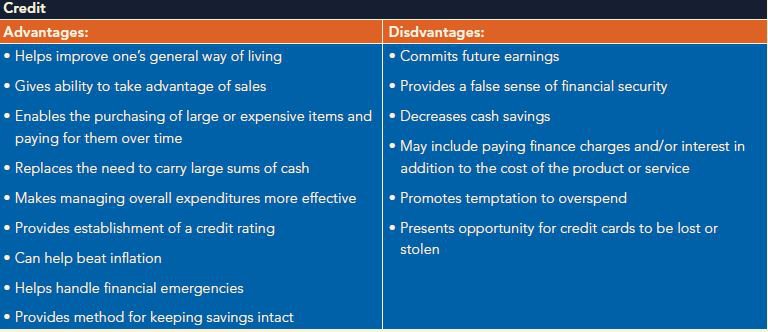Experience the Best of Banking at a Wyoming Credit Union: Your Local Financial Companion
Experience the Best of Banking at a Wyoming Credit Union: Your Local Financial Companion
Blog Article
The Ultimate Guide to Understanding Credit History Unions

Credit history unions stand as unique financial entities, rooted in concepts of common support and member-driven operations. Nevertheless, past their foundational values, comprehending the detailed workings of credit report unions entails a deeper exploration. Deciphering the complexities of subscription qualification, the evolution of services used, and the distinct advantages they bring needs a detailed exam. As we navigate through the complexities of lending institution, an informative journey awaits to clarify these member-focused organizations and exactly how they differ from conventional banks.
What Are Credit History Unions?
Lending institution are member-owned economic organizations that use a series of banking solutions to their participants. Unlike typical financial institutions, cooperative credit union operate as not-for-profit companies, suggesting their main focus gets on serving their members instead than maximizing earnings. Members of a cooperative credit union generally share an usual bond, such as working for the exact same company, belonging to the exact same community, or becoming part of the exact same company.
One of the key benefits of credit history unions is that they typically use greater rates of interest on interest-bearing accounts and lower rates of interest on financings compared to financial institutions. Credit Union in Wyoming. This is since lending institution are structured to profit their participants directly, enabling them to hand down their profits in the kind of better rates and less fees. Additionally, cooperative credit union are understood for their individualized customer solution, as they focus on building connections with their participants to recognize their one-of-a-kind financial requirements and goals
History and Advancement of Cooperative Credit Union
The roots of member-owned financial cooperatives, understood today as cooperative credit union, trace back to a time when neighborhoods sought choices to traditional banking institutions. The concept of credit report unions stem in the 19th century in Europe, with Friedrich Wilhelm Raiffeisen often credited as the pioneer of the participating financial activity. Raiffeisen started the first identified lending institution in Germany in the mid-1800s, highlighting community support and self-help concepts.
The development of debt unions proceeded in North America, where Alphonse Desjardins established the very first cooperative credit union in Canada in 1900. Soon after, in 1909, the very first united state lending institution was created in New Hampshire by a team of Franco-American immigrants. These very early credit report unions operated on the essential principles of common aid, autonomous control, and member ownership.
Over time, cooperative credit union have actually grown in appeal worldwide due to their not-for-profit structure, concentrate on offering members, and offering affordable financial product or services. Today, credit score unions play a vital duty in the monetary industry, providing easily accessible and community-oriented banking alternatives for businesses and people alike.

Membership and Qualification Criteria
Membership at a credit scores union is usually restricted to individuals satisfying particular eligibility criteria based on the institution's founding concepts and regulative demands. Some credit score unions might only serve individuals that live or function in a specific area, while others may be customized to staff members of a specific company or participants of a specific association.
Additionally, lending institution are structured as not-for-profit organizations, meaning that their key objective is to serve their participants instead of create earnings for shareholders. This concentrate on member service commonly equates right into more personalized focus, reduced fees, and affordable rate of interest on cost savings and car loans accounts. By satisfying the eligibility requirements and ending up being a participant of a lending institution, people can access a series of economic product or services tailored to their details requirements.
Providers and Products Provided
One of the crucial facets that sets credit report unions apart is the varied array of financial services and products they offer to their participants. Credit unions usually give conventional banking services such as cost savings and inspecting accounts, fundings, and debt cards.
Moreover, cooperative credit union often give hassle-free online and mobile financial options for members to easily manage their finances. They may offer benefits such as shared branching, allowing members to access their accounts at other credit rating unions across the nation. Some credit unions additionally offer insurance items like home, auto, and life insurance policy to aid participants safeguard their assets and loved ones.

Advantages of Banking With Credit Score Unions
When considering economic organizations, checking out the advantages of financial with credit scores unions discloses one-of-a-kind advantages for members looking for tailored solution and competitive prices. Unlike huge banks, credit score unions are member-owned and focus on structure strong partnerships with their members. Generally, banking with a credit report union can supply an extra customized, economical, and member-centric financial experience.
Final Thought
In conclusion, lending institution attract attention as member-owned monetary establishments that prioritize offering their participants over making the most of profits. With beginnings dating back to 19th century Europe, cooperative credit union comply with concepts of mutual aid and member possession. They supply a series of economic services and products, consisting of conventional financial solutions, investment choices, and affordable rate of interest. Subscription eligibility criteria specify and reflect a community-oriented approach, supplying tailored customer service and a member-centric economic experience.
Credit score unions are member-owned monetary establishments that supply a variety of financial solutions to their participants. The concept of credit scores unions come from in the 19th century in Europe, with Friedrich Wilhelm Raiffeisen usually attributed as the leader of the participating banking activity.The evolution of debt unions proceeded in North America, where Alphonse Desjardins developed the first credit scores union in Canada in 1900. Credit report unions normally give conventional financial services such as cost savings and inspecting accounts, financings, and credit cards.When considering economic institutions, exploring the benefits of banking with credit score unions discloses unique benefits for participants looking for personalized solution and affordable rates.
Report this page